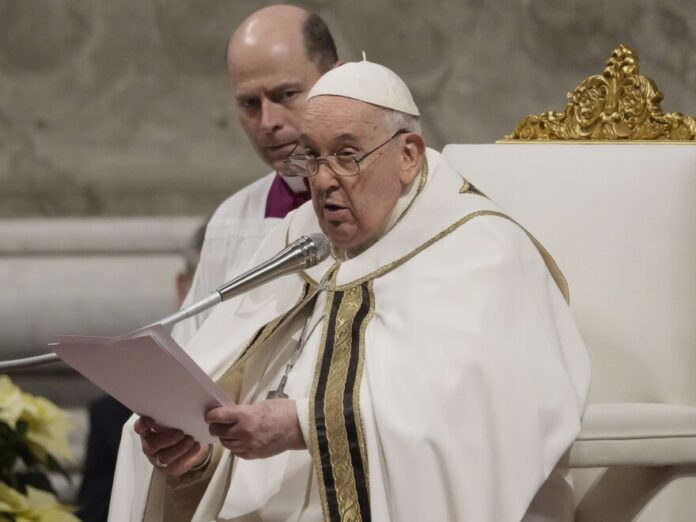At the General Audience on Wednesday, Pope Francis reflected on charisms, gifts granted by the Holy Spirit that help enhance the role of the laity in the Church.
Dear brothers and sisters, good morning!
In the last three catecheses, we have spoken of the sanctifying work of the Holy Spirit, carried out in the sacraments, in prayer and by following the example of the Mother of God. But let us listen to what a famous text of the Second Vatican Council says: “Moreover, the same Holy Spirit not only sanctifies and directs the People of God through the sacraments and mysteries and adorns it with virtues, but he also distributes special graces among the faithful, distributing to each one his gifts as he wishes (1 Cor 12:11)” (Lumen Gentium, 12).
We too have personal gifts that the same Spirit gives to each of us. The time has come, then, to speak also of this second way in which the Holy Spirit works in the Church, which is charismatic action, a word that is a bit difficult. I will explain it: Two elements help to define what charism is. First, charism is the gift given “for the common good” (1 Cor 12:7). In other words, it is not intended primarily and ordinarily for the sanctification of the person, but for the “service” of the community (1 Pet 4:10). Second, charism is the gift given “to one” or “to some” in particular, not to all in the same way, and this is what distinguishes it from sanctifying grace, from the theological virtues and from the sacraments, which instead are equal and common to all. Charism is for a person or a special community; it is a gift that God gives you.
The Council also explains this to us. The Holy Spirit, it says, “makes them capable and ready to perform the various works and duties that are useful for the renewal and further edification of the Church, according to the words: To each one… the manifestation of the Spirit is given for the common good” (1 Cor 12:7).
The charisms are the “jewels” or ornaments that the Holy Spirit distributes to beautify the Bride of Christ. This explains why the conciliar text ends with the following exhortation: “These charisms, both the extraordinary ones and the more common and widespread ones, must be received with gratitude and consolation, because they are very suitable and useful to the needs of the person and of the Church” (LG, 12).
Benedict XVI stated that “looking at the history of the time, one can recognize the dynamic of true renewal, which has often taken unexpected forms in moments full of life and which makes the inexhaustible vivacity of the Church almost tangible,” that is, the charisma, a group of people and the charisma of the person.
We must recover the charisms, because this makes the promotion of the laity and of women in particular understood not only as an institutional and sociological fact, but in its biblical and spiritual dimension. The laity are not the last, no, the laity are not a kind of external collaborators or auxiliary troops of the clergy, no, but they have their own charisms and gifts with which to contribute to the mission of the Church.
Let us add one more thing: when we speak of charisms, we must immediately dispel a misunderstanding: that of identifying them with spectacular and extraordinary gifts and abilities; they are, instead, ordinary gifts; each of us has his own charism, which acquire an extraordinary value when they are inspired by the Holy Spirit and embodied in life situations with love.
This interpretation of charisma is important, because many Christians, when they hear about charismas, experience sadness and disappointment, since they are convinced that they do not possess any and feel excluded or like “B” Christians. There are no “B” Christians. Each one has his own charisma, both personal and communal.
In his time, St. Augustine responded to these with a very eloquent comparison: “If you love,” he said to his people, “you have something, for if you love unity, whoever has it in it also has something for you. … In the body the eye sees alone; but does the eye see only for itself? It sees also for the hand, it sees also for the foot, it sees also for the other members.”
Here is revealed the secret by which the Apostle defines charity as “the more excellent way” (1 Cor 12:31): it makes me love the Church, it makes me love the community in which I live and, in unity, all the charisms, not just some, are “mine” just as “my” charisms, even if they seem small, belong to everyone and for the good of everyone. Charity multiplies charisms, it makes the charism of one the charism of all.



